Fridays: New Hollywood 1967-81
Scorsese, Coppola, Spielberg, and Friends
By Haley Markbreiter
By the end of the sixties, "Old Hollywood" was going broke fast. Stale, extravagant sets no longer thrilled audiences, who were also flocking to this newfangled thing called a television. Studios were also desperate to capitalize on an expanding—and increasingly educated—youth market, college kids who wanted American movies to look like their favorite, foreign art-house flicks. "Why can't America make a film like Breathless?"
Well, the industry tried. To get "young people" out to the movies, they let "young people" direct big studio movies instead of independent films. Many of these new directors—like Scorsese and Coppola—were trained by Roger Corman, a prolific B-filmmaker who claimed that he could make a feature in three days. Some directors were still produced by the system itself. After having been rejected from USC Film School (twice), Steven Spielberg was interning for Universal Studios when he made Amblin', a short film about hippies smoking dope in the desert and having sex in sleeping bags (this, from the man who would make Indiana Jones! ). Amblin' was spotted by Universal's TV VP, who gave twenty-six year old Spielberg his first directing gig.
In any case, this influx of new talent led to a shift in Hollywood's content, editing, and narrative styles. Suddenly, sex in movies was okay, and violence (and drugs) were encouraged. The three-act linear story-arc—complete with happy ending—was jettisoned in favor of episodic plots and deliberately irresolute finishes. Cinematography and editing no longer functioned as invisible mechanisms meant to uphold the plot. Instead, they were meant to be noticed.
We can already see this in Bonnie and Clyde, whose final sequence—known as the "ballet of blood"—inaugurated the New Hollywood style. Here, our two assassins (and, of course, our two lovers) are killed in a multi-speed, multi-camera squib massacre, and we don't see the shooters at all. Instead, Penn rapid-cuts from: birds flying, the bushes trembling, a man's alarmed and expectant face (although—what are they even worried about? ) And then, a car approaching… shot-reverse-shot of just Bonnie and Clyde's faces—worried, desperately in love… Then, they're machine gunned down, their bodies writhing and dancing with the bullets long after they're killed. Dead matter brought to life—just like film itself.
The New Hollywood would end in the 1980's and the dawn of the Blockbuster Era.
2013-04-05 @ 7:00 PM
Bonnie and Clyde
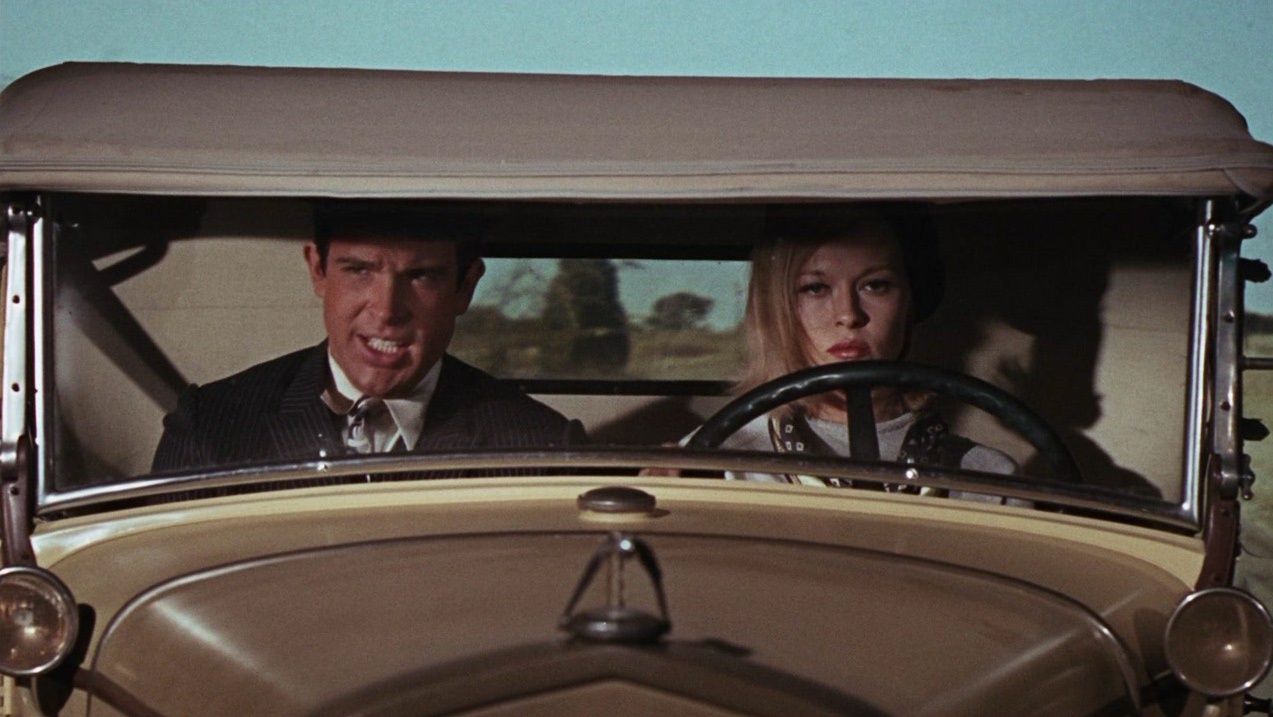
(Arthur Penn, 1967) · With its non-linear editing, jumpy cuts, and jarring tonal shifts, Bonnie and Clyde inaugurated New Wave influence on New Hollywood style. Bonnie (Dunaway) and Clyde (Beatty) are on a murderous crime spree across America. But this climactic, bloody violence stands in moving contrast with their own hopeful, anti-climactic romance, diffused by Clyde's impotence. Regardless, their squibbed up fight against the Man vaults B. and C. into pure myth.
runtime: 112 min format: 35mm
2013-04-12 @ 7:00 PM
The Graduate
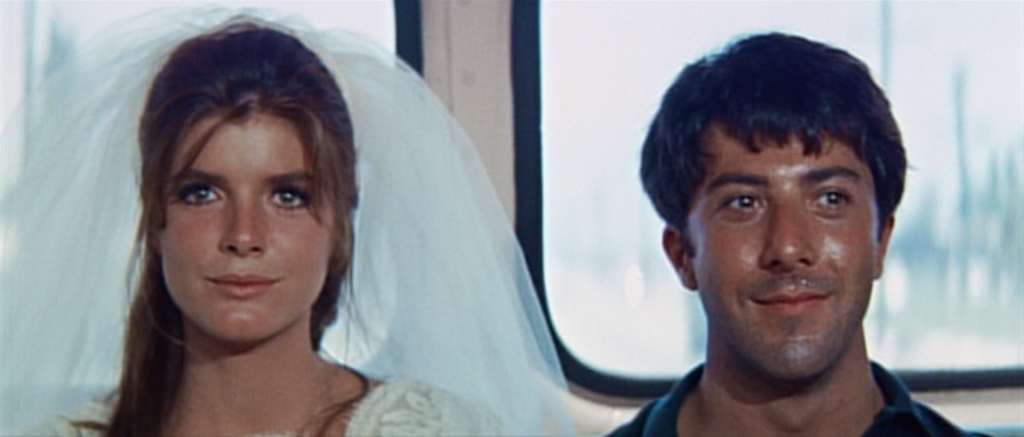
(Mike Nichols, 1967) · Made in the era of the ever-present and sensationalized generational gap, the adults in The Graduate are alienating, calcified in out-of-touch middle class values. But, the kids aren't much better: graduate Benjamin (Hoffman) doesn't know what to do, so he just…swims in his parents' pool. The only person who seems aware of her own desires — and acts on them — is the icy Mrs. Robinson, with whom Ben begins an affair. Restored print from Rialto.
runtime: 106 min format: 35mm
2013-04-19 @ 7:00 PM
Harold and Maude
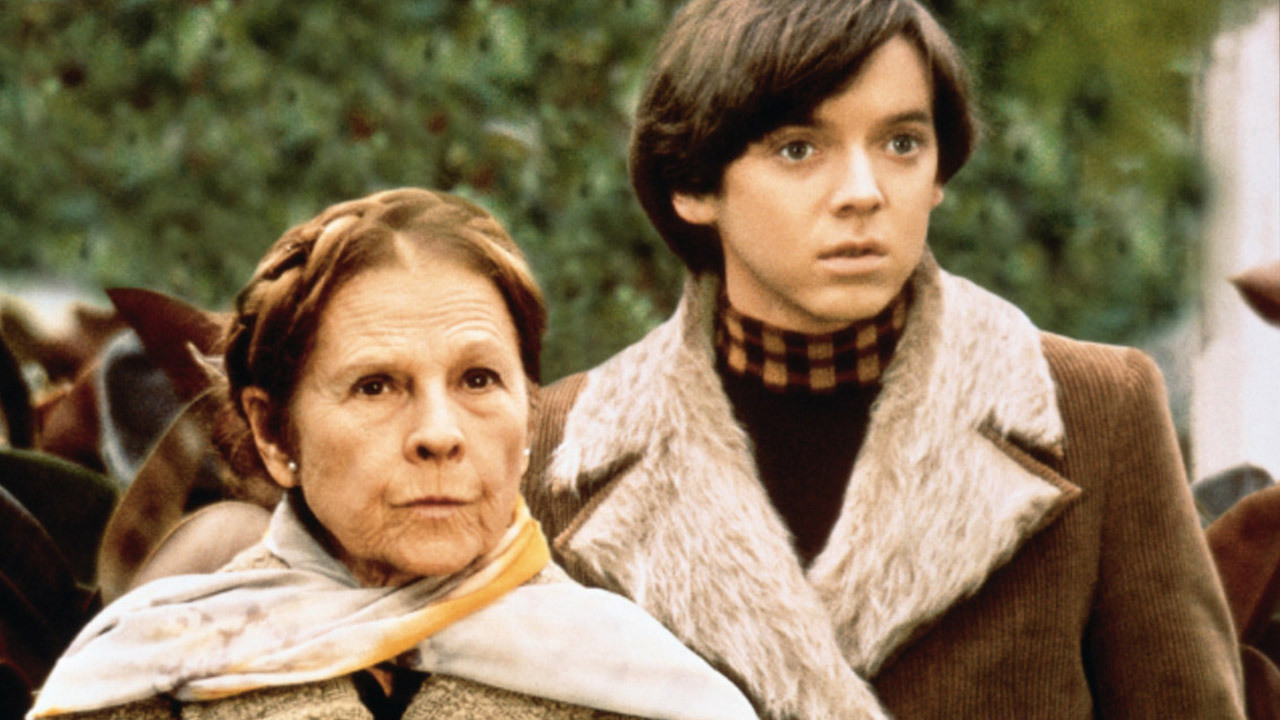
(Hal Ashby, 1971) · Bud Cort never played anyone better than Harold, a bug-eyed teen obsessed with staging his own suicide (hari-kari, drowning, self-immolation). Then, he falls in love with Maude, whose proximity to death (she is 79¾) inspires—not Harold's theatrical angst—but a real will to live. The understanding, fun (and physical pleasure!) they get out of one another force the audience to question why we're so squeamish and scared of old age anyway.
runtime: 91 min format: DCP
2013-04-26 @ 7:00 PM 10:30 PM
The Godfather
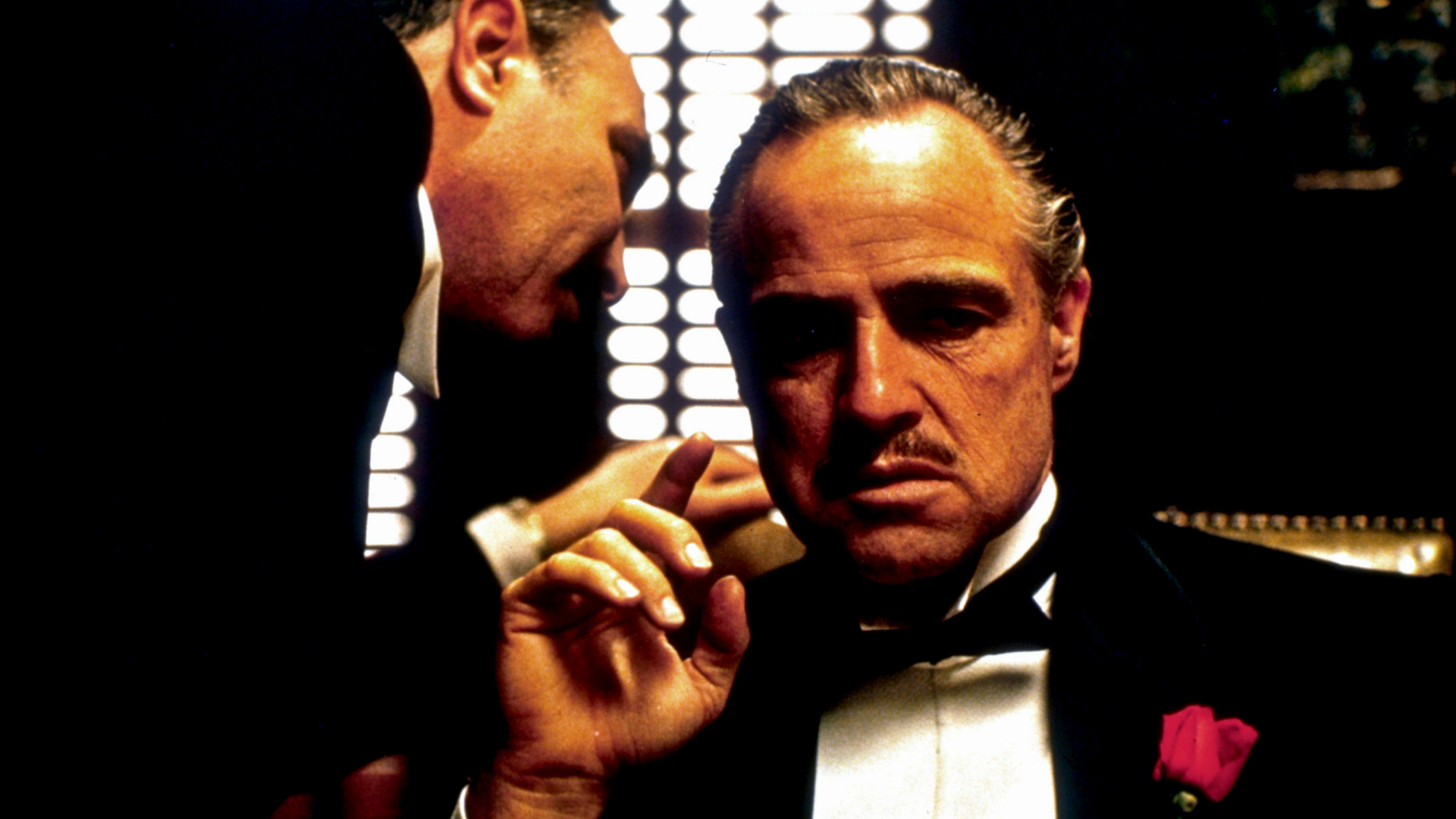
(Francis Ford Coppola, 1972) · Paramount head Robert Evans wanted a cheapo mafia flick made by "someone Italian". He ended up with what some consider the greatest film of all time. Brando plays Vito Corleone, family man and head of the "family", a big New York crime mob. Meant as a metaphor for American capitalism, The Godfather tracks how Michael Corleone (Pacino) is drawn into the "family", a move which Coppola depicts as both inevitable and the cause of Michael's moral downfall.
runtime: 175 min format: 35mm
2013-05-03 @ 7:00 PM 10:30 PM
The Godfather: Part II
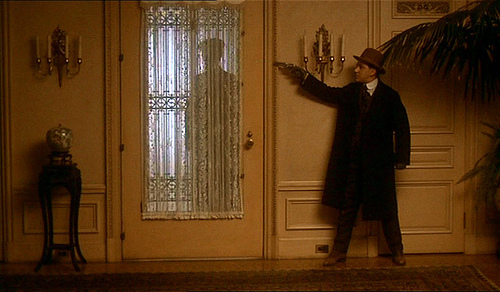
(Francis Ford Coppola, 1974) · Which is better: Godfather I or Godfather II? Well – just watch both and find out. Here, the narration jumps from Vito Corleone's rise from young, broke, Sicilian immigrant to successful, happy, and social American gangster, as well as Michael Corleone's decline into successful, unhappy, isolated American gangster. In contrast to Part I, cinematographer Gordon Willis shrouds most rooms and close-ups in almost pure black. "I know. I'm trying, darling."
runtime: 200 min format: 35mm
2013-05-10 @ 7:00 PM
Jaws
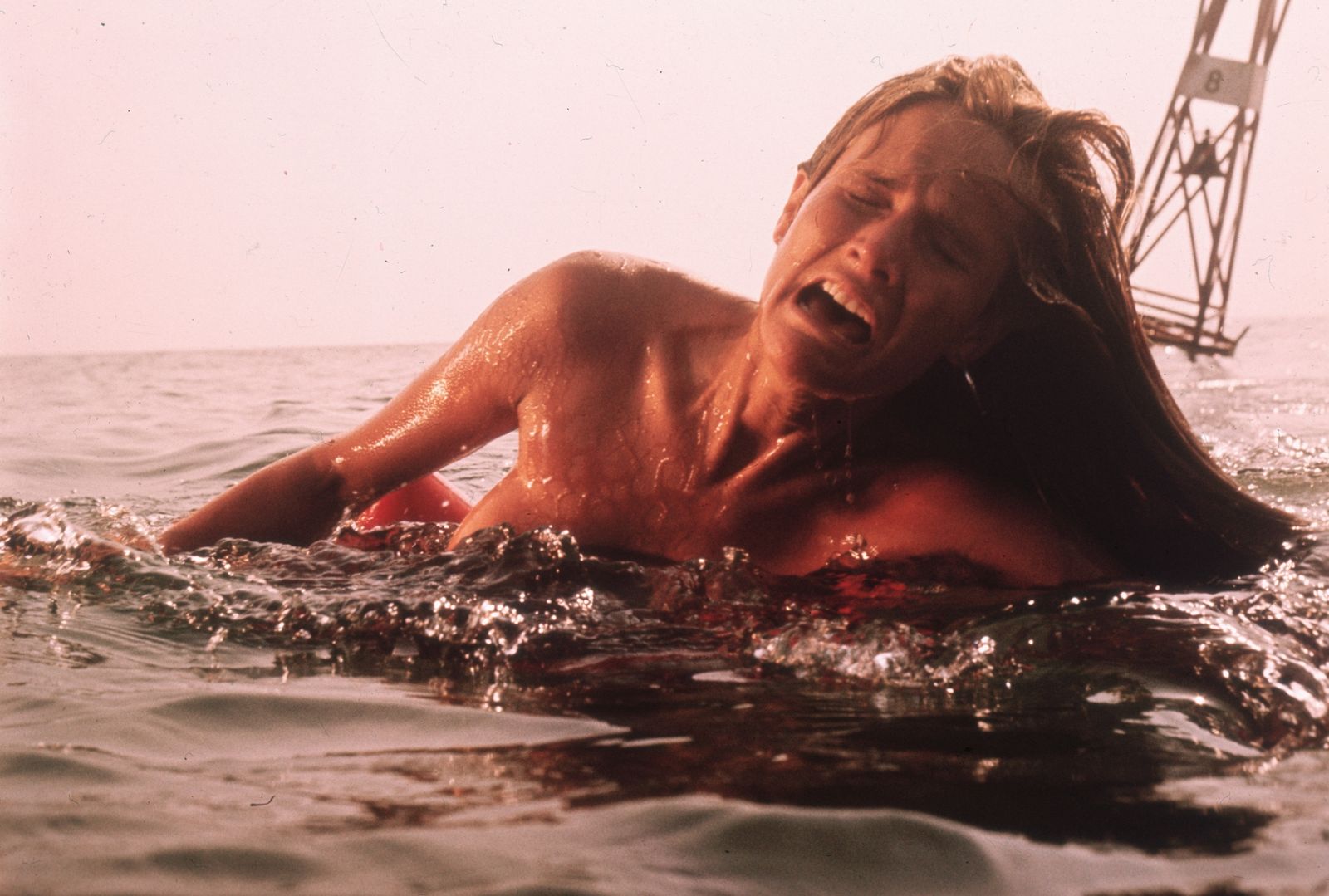
(Steven Spielberg, 1975) · Giant shark eats sexy girl. Shark methodically terrorizes small American town. Few other films are as firmly branded into our collective cultural memory (or have inspired such a mass fear of swimming). You KNOW Jaws, whether you've seen it or not – the leering theme song, the sets of teeth emerging from the water... Still: Spielberg's suspense is masteful, as is writer Carl Gottlieb's portrayal of a terrified, panicking vacationland.
runtime: 124 min format: 35mm
2013-05-17 @ 7:00 PM
Rosemary's Baby
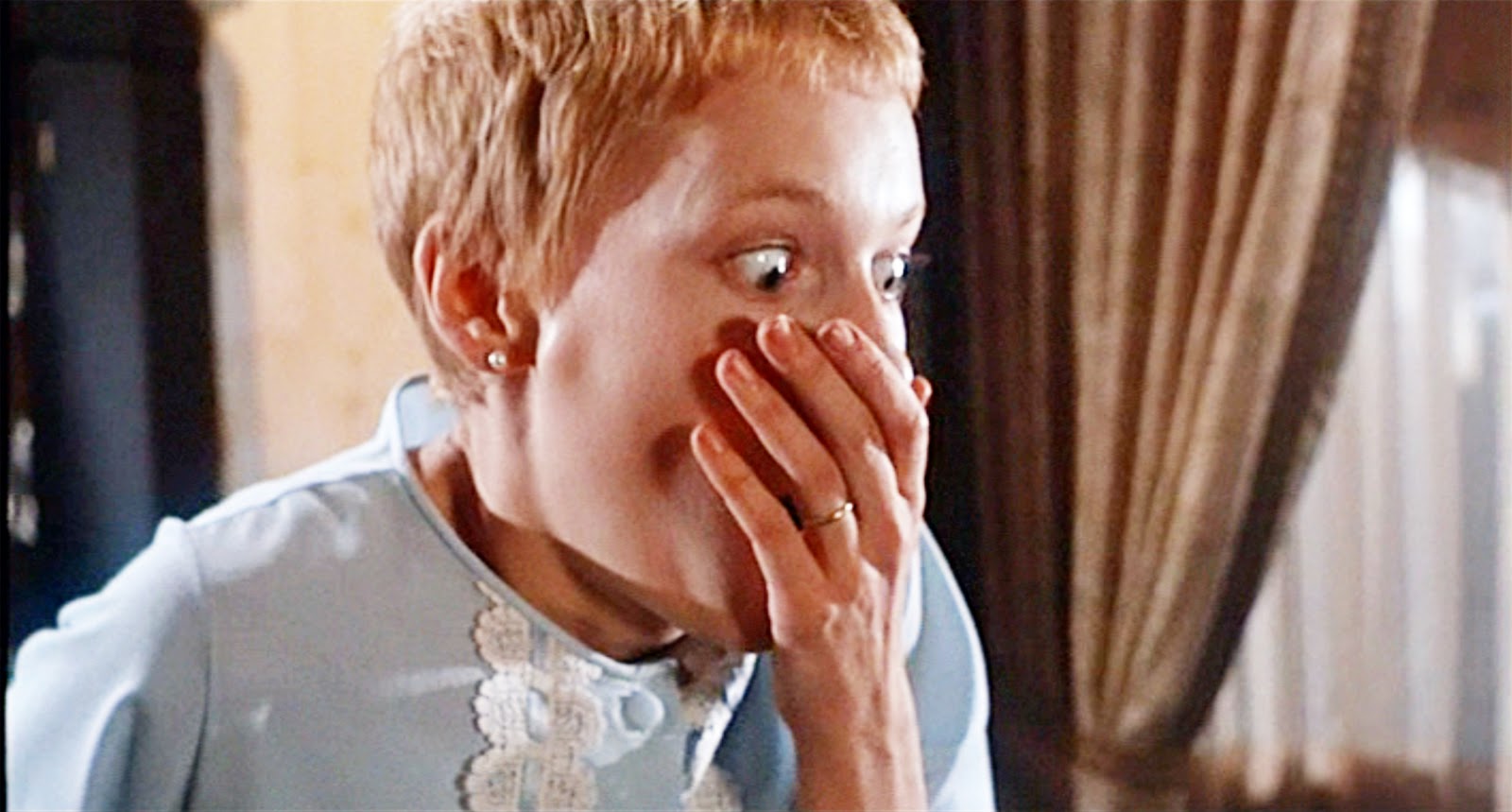
(Roman Polanski) · Mia Farrow dons a pixie cut and a nice, smiley husband named Guy (John Cassavetes). The only problem is that she is pregnant, and suspicious that Guy promised her unborn child to the neighbors: he gets a part in a hot new play, they get to use her baby in weird Satanic rituals. The fear that your body is being used by strangers, for unknown purposes, is terrifying, as are the the almost cartoony Satanists.
runtime: 136 min format: 35mm
2013-05-24 @ 7:00 PM
Taxi Driver
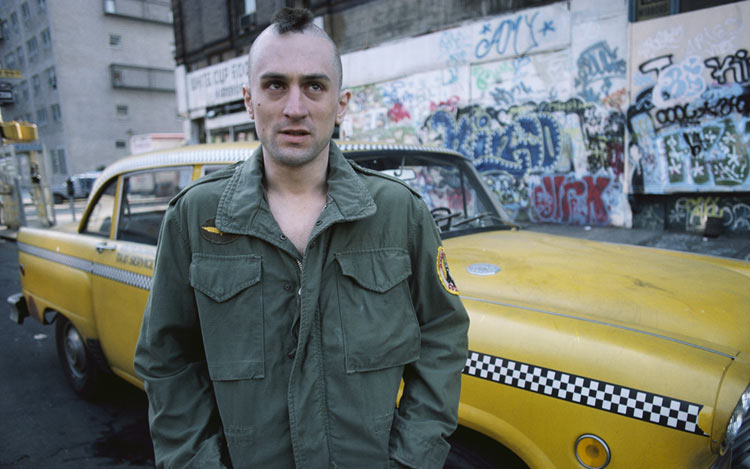
(Martin Scorsese, 1976) · Based off of one failed political killing and, and the inspiration for another (Reagon's), Taxi Driver is an imprint of 1970's New York, thought to be the pimp-studded navel of hell. It was also, of course, Scorsese's hometown. Here, Vietnam vet Travis (De Niro) drives around in his insomniac taxi cab, furious at the "scum". Then, he decides to fight it, disconnecting himself from social reality—and then staring back at us.
runtime: 113 min format: 35mm
2013-05-31 @ 7:00 PM
Good Burger

(Brian Robbins, 1997) · "Welcome to Good Burger, home of the Good Burger, can I take your order?" Come relive your youth at Doc Films' annual Megascreening! In case you've forgotten, this remarkably bad movie stars Kenan & Kel as two teenage dimwits who concoct a brilliant scheme to keep the fast food joint they work at afloat after a big evil burger chain, Mondo Burger, opens right across the street to much success. Rated PG for comic violence and mild sex-related humor.
runtime: 103 min format: 35mm
2013-06-07 @ 7:00 PM
Raiders of The Lost Ark
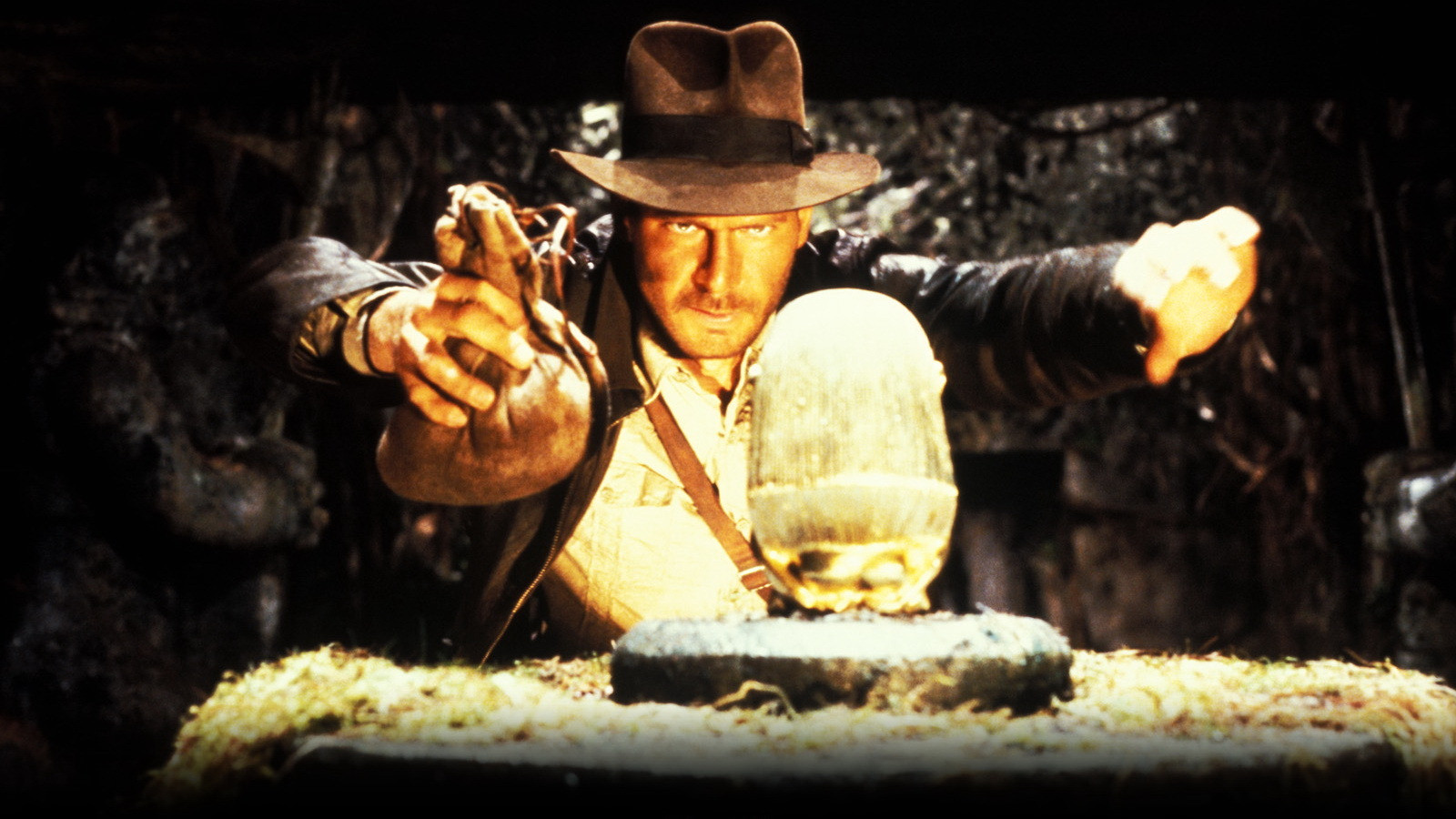
(Steven Spielberg, 1981) · Kicking off the Blockbuster Era, Indy fights the Nazis in one of the highest-grossing films ever made. It was born out of George Lucas's desire to revive the film serials of the 30s and 40s, cinematic comics (like Captain Marvel!) which would screen before the feature. Here, Indy and ex (new?) lover Marion must stop Hitler from finding the Covenant of the Lost Ark, a special golden statue which could make the German army invincible. Can Indy stop him?
runtime: 115 min format: 35mm



